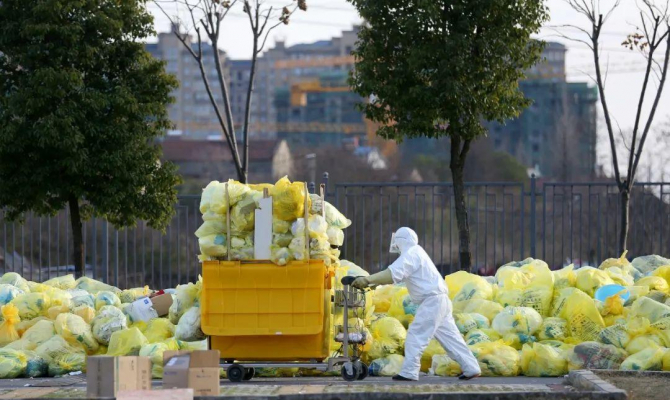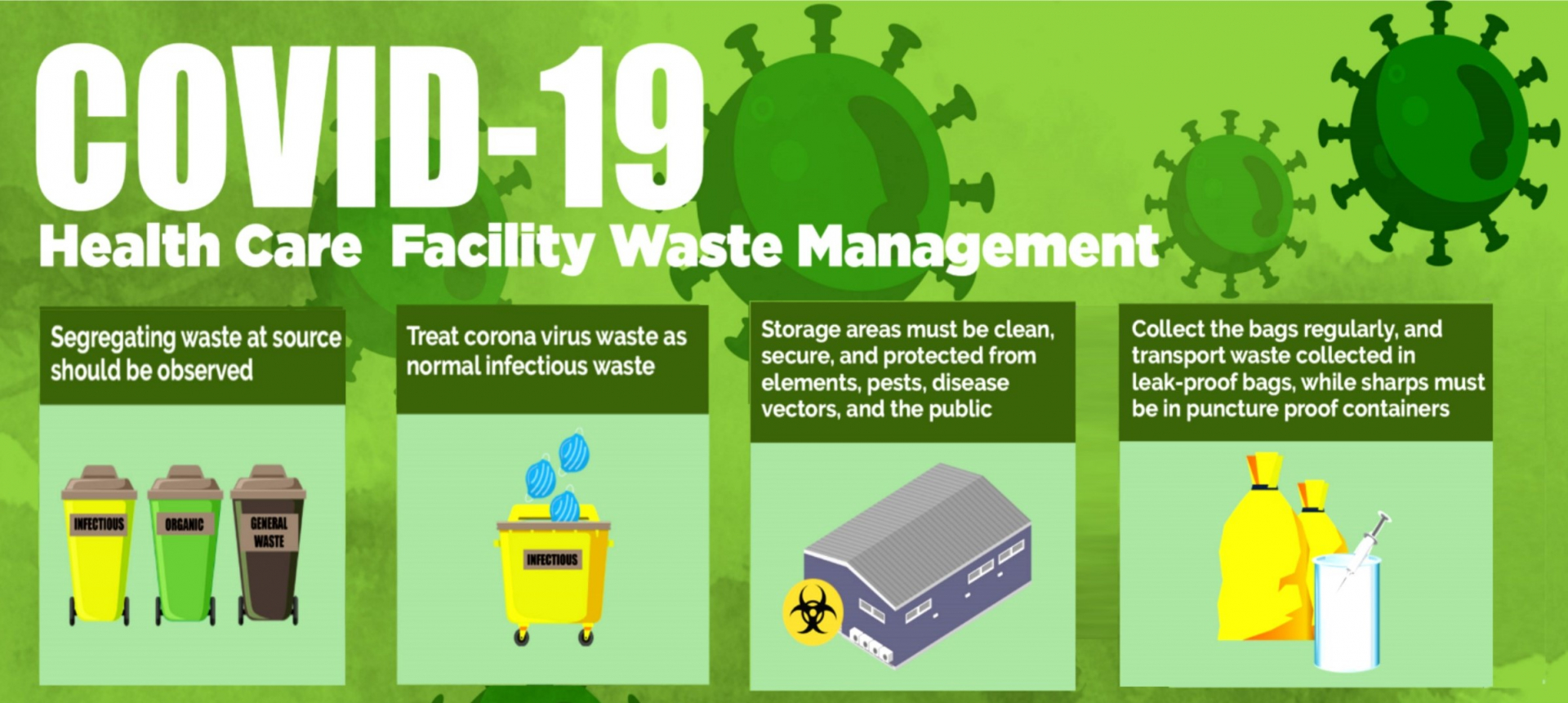News - May 19, 2021 Effective Management of Medical Waste Essential During Pandemic


As the world grapples with the COVID-19 coronavirus pandemic, countries are now facing another challenge as a result: how to manage medical waste safely and effectively.
Many types of additional medical and hazardous wastes are being generated during the pandemic, including infected masks, gloves, and other personal protective equipment (PPE).
The Secretariat of the Pacific Regional Environment Programme (SPREP), through its Waste Management and Pollution Control programme, is reaching out to its Members in the Pacific islands to address the importance of safe handling, transportation, and final disposal of this waste, as they can cause unforeseen “knock-on” effects.
SPREP’s Director-General, Mr Kosi Latu, says, “As the COVID-19 pandemic continues to spread, and its impacts upon human health and the economy intensify day-by-day, we are working with our SPREP Members to treat waste management, including of medical, household and other hazardous waste, as an urgent and essential public service in order to minimise possible secondary impacts upon health and the environment.”
In dealing with the pandemic, it is evident that health care facilities being used to test, isolate, and treat patients of COVID-19 need additional support, in-house personnel responsible for the management of medical waste need to be trained and equipped with the most appropriate PPE, and special care must be taken by these key staff to ensure that infectious medical waste is appropriately collected, separated, stored, transported, treated, and disposed of.
“SPREP, as the Pacific Regional Centre for the Joint Implementation of the Basel and Waigani Conventions, have shared crucial information on practical medical waste management guidelines from the UN Basel Convention’s Technical Guidelines on the Environmentally Sound Management of Biomedical and Healthcare Wastes for authorities seeking to minimise hazards to human health and the environment,” Mr Latu added.
The Basel Convention on the Control of Transboundary Movements of Hazardous Wastes and their Disposal, also known simply as the Basel Convention, is an international treaty that aims to protect human health and the environment against the adverse effects of hazardous wastes. The regional Waigani Convention is modelled on the Basel Convention and aims to reduce and eliminate transboundary movements of hazardous and radioactive waste and minimise the production of hazardous toxic wastes in the Pacific region.
Other resources also shared by the Secretariat included resources on the safe handling and final disposal of medical wastes from the Basel Convention’s Regional Centre for Asia and the Pacific, as well as a factsheet on the management of medical waste during COVID-19 which has been developed by the EU-funded Pacific Waste Management Programme (PacWastePlus).
Household waste is also likely to be critical during the COVID-19 pandemic.
“The Secretariat notes that some countries are advising citizens with recent travel history to self-quarantine at home or in hotels. We urge authorities to be wary of mixing medical waste such as contaminated masks, gloves, used or expired medicines, and other items, with domestic garbage,” said Mr Latu.
Any waste that has been in contact with a facility that is housing a COVID-19 patient or a person who has been exposed to the coronavirus, including decontamination materials, should be treated as medical waste.
“It is important that waste bags should be collected and placed in a clean general garbage bag and as such the closed patient waste bags can be put directly in the unsorted garbage as no special collection activity or other disposal method is necessary,” he concluded.

